Go Off-Grid with Solar Energy: A Complete Guide
Go Off-Grid with Solar Energy: A Complete Guide
Go off-grid, more commonly defined as not having a dependence on public utilities such as electricity, sounds appealing for a lot of reasons. The idea of being self-sufficient, powering your own home with solar energy, and maybe even building that home with your own two hands can sound like a dream and a challenge for people who wish to live life on their terms.
Maybe you’ve thought about it many times before, could you make it out there alone in the wild? Exactly how feasible is it to live without the electrical grid using solar energy as your only power source? Whether you dream of that cabin in the woods or just want to exert your energy independence over your local utility, going off-grid is possible but that doesn’t mean that it’s beneficial.
For starters, being off the grid takes a lot of planning, not to mention that it’s incredibly expensive to get started. Plus, you’ll need to have backup energy sources on hand, particularly if you’re not ready to let go of your power-hungry devices.
There are plenty of reasons to consider going off-grid with solar energy:
Savings –
Cutting ties with the local power company means that you will never have to pay a monthly power bill again because all of your energy will come from a renewable source.
Environmental benefits –
Using entirely renewable energy for your power needs means a lower carbon footprint.
No blackouts –
All of your energy is stored in the battery or batteries attached to your system, so you can draw on it whenever you need it—during a major winter storm, on hot summer days when the power grid is overloaded, or anytime in between. You won’t be at the mercy of the local power company.
Building locations –
off-grid solar systems are ideal for homes in areas where there is no current connection to a local power grid, such as a cabin up in the mountains or a home that is off the beaten path. Going off-grid allows you to build without the need to pay for power lines out to the house.
Solar power has the amazing benefit of helping reduce strain on the electrical grid when demand rises during peak seasons or extreme weather hits. By generating your clean power and even sending excess energy back to the utility in some cases, you are creating a more reliable electrical grid.
Virtual power plants (VPP) are another example of homeowners using their solar systems for the greater good of their community. VPPs come into play when energy demand is higher than the available amount. When this occurs, home batteries that are connected to the VPP trade their stored electricity to the electrical grid to help meet the demand.
The reliability of the electrical grid has become an increasing concern for many homeowners as power outages become more commonplace. That’s why the popularity of home solar systems and VPPs has been on the rise. In the 2021 Energy Sense Index conducted last year, it was discovered that two out of every five homeowners worry about power outages every month of the year.
It is important to note that installing solar panels doesn’t necessarily mean that you’ve gone off-grid. Typical solar energy systems aren’t always designed to generate enough electricity to power an entire home, but rather maintain a connection to the utility company’s main grid as backup.
This is referred to as a hybrid system, a less expensive and more flexible option, especially for homeowners that live closer to their area’s power grid.
Suggested Articles
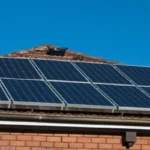
Industrial Solar Power: 7 Reasons to Make the Switch
Top 7 benefits of solar energy for industries, including cost savings, environmental impact, and improved energy reliability.
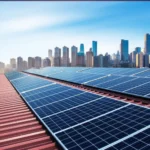
India and Japan Strengthen Renewable Energy Cooperation
India and Japan have initiated a partnership under the Asia Energy Transition Initiative (AETI) to support India’s clean energy transition. India has set an ambitious target of achieving net-zero by 2070, while Japan aims to achieve the same by 2050.
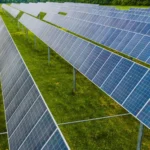
1 MW Solar Power Plant Cost in Madhya Pradesh | A Complete Industrial Solar Guide
A detailed guide on the cost of setting up a 1 MW solar power plant in Madhya Pradesh. Learn about pricing, EPC components, land requirements, subsidies, and expected payback for commercial and industrial users.
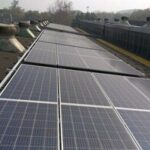
Complete Guide to Rooftop Solar Components for Industries
A rooftop solar system for factories typically includes solar panels, inverters, mounting structures, wiring, and monitoring systems. Additional components like net meters and energy storage may also be installed to optimize energy usage and track performance

How to Safely Install Solar Panels on Metal and Asbestos Rooftops
Discover how solar systems can be installed on metal sheds and asbestos roofs, making factories more energy-efficient and sustainable

SECI Sets Record in Renewable Energy Trading, Surpasses ₹100 Billion
SECI achieves record renewable power trading revenue surpassing ₹100 billion, marking a milestone in India’s clean energy growth and solar market expansion.
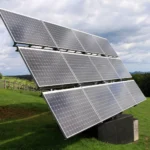
New IREDA Loan Scheme for Solar Rooftop Projects: Benefits, Eligibility & Interest Rates
India’s renewable energy push gets a major boost with the new IREDA loan scheme for solar rooftop projects. This scheme offers low-interest financing, simplified approvals, and better support for residential, commercial, and industrial consumers. Here’s a detailed look at its benefits, eligibility, interest rates, and how to apply for funding.
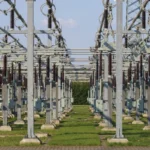
Haryana’s GEOA 2025: A Boost for Captive Solar Plants and Wind Energy Developers
Haryana’s GEOA 2025 paves the way for growth in captive wind and solar energy projects with investor-friendly reforms.